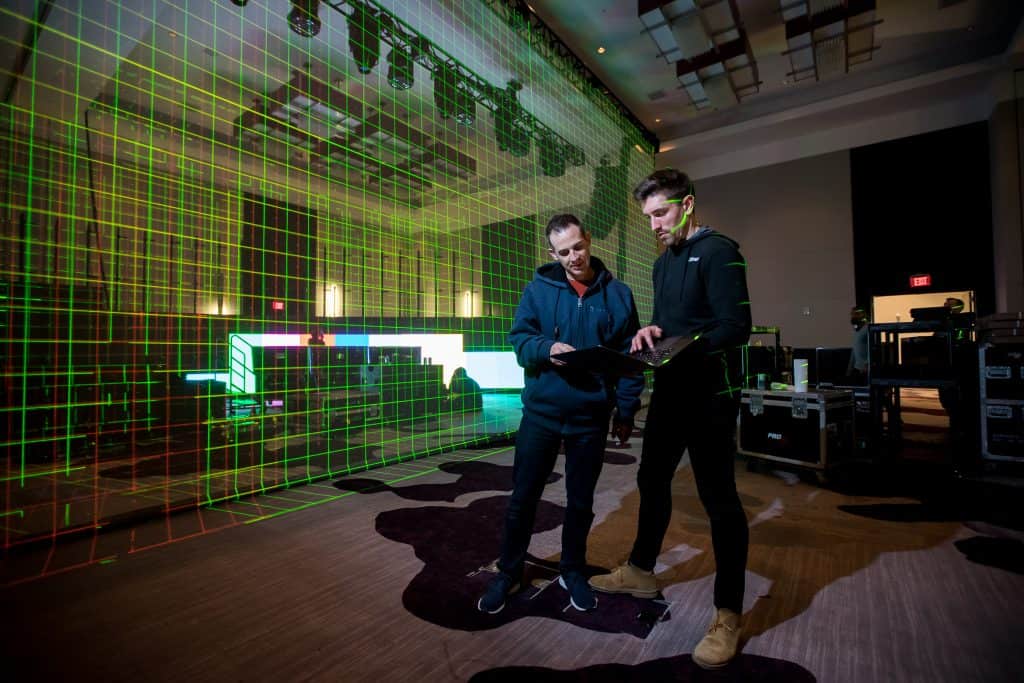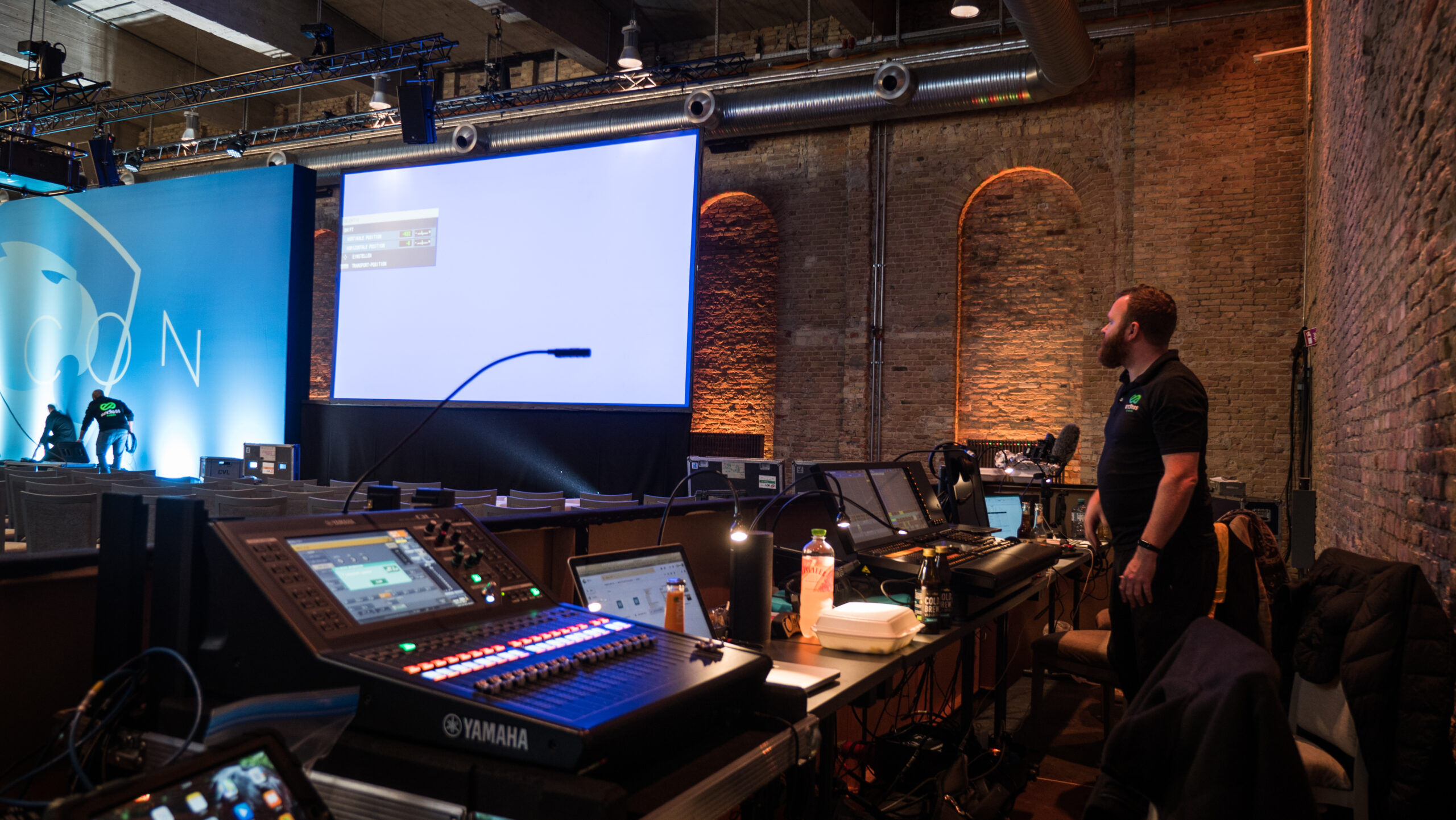Comprehending Event Production: Why It Is Very Important for Effective Gatherings
Event production plays an important role in forming successful celebrations. It includes careful planning, sychronisation, and execution to assure every detail straightens with the event's vision. This process not just enhances attendee experiences yet also facilitates significant connections amongst participants. Recognizing the complexities of event production can greatly affect the general outcome. What are the crucial elements that contribute to an effective event, and exactly how can they be properly managed?
The Function of Event Production in Developing Memorable Experiences
Although many elements add to the success of an occasion, event production plays a pivotal function in crafting remarkable experiences. This complex procedure includes numerous components, including planning, logistics, and execution. Efficient event production guarantees that every detail lines up with the general vision, developing a smooth flow that astounds participants. By working with timelines, taking care of sources, and supervising technical elements, event producers develop a structure for impactful experiences.Moreover, they curate settings that reverberate with the target market, improving interaction and emotional connection. From choosing appropriate venues to integrating innovative technology, the choices made during production greatly affect exactly how participants perceive and keep in mind the event. By prioritizing quality and focus to information, event production changes ordinary celebrations into remarkable moments, leaving long lasting impressions. Inevitably, the proficient orchestration of these elements defines the essence of an occasion, showcasing the value of professional event production in attaining exceptional outcomes.
Secret Elements of Effective Event Production
Reliable event production rests on numerous essential parts that guarantee success. Preparation and sychronisation establish a solid structure, while technological setup demands address logistical requirements. Additionally, carrying out target market engagement methods enhances the total experience, making the event memorable.
Planning and Sychronisation
Preparation and coordination work as the foundation of successful event production, making sure that every information straightens perfectly to develop a remarkable experience. Effective planning involves developing a clear vision and goals, while sychronisation requires the thorough company of logistics, schedules, and sources. A distinct timeline is essential, guiding all stakeholders through important milestones and tasks. Communication plays a critical role, promoting cooperation amongst group participants, suppliers, and location personnel. Regular meetings and updates help to deal with difficulties without delay, ensuring that everyone continues to be straightened with the event objectives. Inevitably, a structured method to planning and control not only enhances efficiency but also substantially adds to the total success and pleasure of the event for guests and organizers alike.
Technical Arrangement Requirements
A successful event counts greatly on its technical arrangement needs, which encompass essential components such as audio-visual tools, lights, hosting, and connectivity. Audio-visual tools includes microphones, audio speakers, and projectors, making sure that presentations and efficiencies are delivered plainly. Appropriate lighting improves the setting and highlights crucial areas, while staging gives the needed platform for audio speakers and performers. Connection, including Wi-Fi and electric gain access to, is essential for seamless interaction and innovation assimilation. Each element has to be thoroughly planned and carried out, tailored to the event's certain needs. Insufficient technological setups can cause interruptions, adversely impacting the general experience for participants, highlighting the relevance of extensive prep work and attention to detail in event production.
Target Market Interaction Techniques

The Significance of Planning and Sychronisation
Preparation and sychronisation are vital to the success of any event production. Efficient timeline management, resource allocation approaches, and team communication dynamics play vital functions in ensuring that all aspects come with each other effortlessly. Without an organized technique to these elements, events risk dealing with hold-ups, budget overruns, and miscommunication among employee.
Efficient Timeline Administration


While effective event production frequently depends upon imagination and implementation, reliable timeline administration continues to be a crucial element that can not be neglected. A well-structured timeline functions as the foundation of any event, ensuring that each phase is executed in a prompt fashion. It enables the coordination of numerous jobs, from place arrangement to visitor arrivals, while preventing potential traffic jams. By plainly detailing deadlines and responsibilities, event planners can keep emphasis and adapt to unforeseen challenges. Additionally, a meticulously crafted timeline fosters interaction amongst staff member, promoting responsibility and partnership. Ultimately, reliable timeline monitoring not only enhances functional effectiveness but likewise contributes greatly to the total success and smooth execution of the event, leaving attendees with a remarkable experience.
Source Allotment Strategies
Reliable resource allocation approaches are critical for the successful implementation of any type of event. Proper preparation enables event coordinators to determine and disperse resources, such as funds, workers, and materials, in a way that takes full advantage of efficiency. By examining the specific requirements of each facet of the event, coordinators can focus on tasks and designate resources accordingly. Sychronisation amongst different departments makes find this certain that all aspects, from satisfying audiovisual requirements, are sufficiently sustained. This tactical strategy not only lessens waste however also improves the total experience for attendees. Furthermore, expecting prospective obstacles and having backup plans in position enables smoother procedures. Inevitably, reliable source allocation contributes considerably to accomplishing event purposes and guaranteeing a memorable gathering.
Team Communication Characteristics
How can seamless communication amongst staff look here member change the event production procedure? Efficient interaction is crucial for working with tasks, sharing updates, and attending to difficulties in real-time. When staff member participate in open dialogue, they can rapidly determine prospective problems and develop services collaboratively, reducing delays and misconceptions. This vibrant fosters a natural atmosphere where everyone understands their functions and obligations, resulting in a more synchronized initiative. Additionally, regular check-ins and feedback loopholes boost responsibility and guarantee alignment with the event's objectives. By focusing on interaction techniques, groups can enhance operations, boost spirits, and ultimately raise the overall quality of the event. Effective events depend upon the ability to interact successfully, making it a crucial element of event production.
Enhancing Guest Involvement Via Imaginative Layout
Creative design plays a vital duty in boosting guest interaction at events, as it promotes an immersive setting that captivates participants' interest. By incorporating innovative visuals, interactive elements, and thematic decor, event organizers can create remarkable experiences that reverberate with attendees. Thoughtful format styles promote motion and exploration, motivating guests to interact with displays and each other.Incorporating modern technology, such as increased truth or live ballot, more enriches the experience, permitting for real-time feedback and interaction. Furthermore, sensory components like lighting, sound, and fragrance can evoke emotions and produce a more engaging atmosphere.The usage of narration via design aids communicate the event's function and message, making it a lot more relatable for guests. Inevitably, innovative layout not only improves involvement however additionally grows links among participants, leaving a long lasting perception that expands past the event itself. This critical strategy to layout is vital for effective events.
Handling Logistics for a Smooth Execution
While the exhilaration of an event can attract participants in, taking care of logistics is important to secure a seamless execution. This involves diligently working with numerous aspects, from place selection and design to wedding catering and transport. Efficient logistics administration ensures that all components align, permitting a smooth circulation from registration to the final thought of the event.Additionally, a clear communication plan amongst all stakeholders is important. This includes team, suppliers, and volunteers, that should be informed of their duties and duties. Preparing for possible difficulties, such as tools failure or unanticipated climate condition, can further boost the event's success.Creating a thorough timeline assists keep the group on track and enables prompt adjustments. Eventually, well-managed logistics not only promote an enjoyable experience for participants however additionally show the professionalism and integrity of the organizers, contributing to the overall success of the event.

The Influence of Modern Technology on Event Production
What duty does innovation play fit modern event production? blog here Modern technology has become a cornerstone of efficient event production, enhancing both intending and implementation procedures. From sophisticated enrollment systems to interactive applications, technology streamlines guest monitoring and boosts interaction. Virtual event systems allow coordinators to reach bigger audiences, damaging geographical barriers and promoting hybrid events that combine in-person and on the internet experiences.Additionally, audiovisual technologies, such as high-def displays and stereos, boost the quality of discussions and efficiencies, making sure a remarkable experience for guests - event production charlotte. Social media site combination enables real-time comments and communication, fostering neighborhood involvement in the past, during, and after the event. Information analytics devices assist organizers in keeping an eye on individual habits and choices, making it possible for customized experiences that reverberate with varied target markets. Overall, the combination of innovation in event production not just boosts functional performance yet also enhances attendee experiences, eventually contributing to the success of the event
Examining Success: Gauging the Outcomes of Your Event
Success in event production rests on effective assessment, which involves measuring a selection of end results to assess the total influence of an occasion. To attain this, organizers can utilize both qualitative and quantitative metrics. Measurable actions might consist of presence numbers, ticket sales, and profits produced, while qualitative evaluations might involve attendee fulfillment studies and comments forms.Additionally, assessing social media engagement and media coverage can give understandings into the event's reach and brand name influence. Comparing these metrics against predefined objectives assists identify if the objectives were met.Furthermore, post-event debriefs with the preparation group can discover lessons learned and locations for enhancement. By methodically reviewing these results, event producers can boost future events, ensuring continual growth and success. Ultimately, a thorough analysis not only highlights success however additionally educates strategic choices for subsequent events, promoting a society of excellence in event production.
Frequently Asked Inquiries
What Qualifications Should an Occasion Producer Have?
Event producers need to possess solid organizational abilities, creative thinking, and efficient interaction capabilities. A history in project monitoring, budgeting, and arrangement is important. Pertinent certifications and experience in varied event types even more boost their qualifications.
Exactly How Can I Lower Event Production Costs Properly?
To efficiently minimize event production prices, one can improve supplier selection, work out contracts, use internal sources, prioritize crucial elements, execute innovation for effectiveness, and discover sponsorship chances to counter expenditures without compromising quality.
What Are the Common Difficulties in Event Production?
Usual obstacles in event production consist of budget constraints, logistical coordination, vendor monitoring, time constraints, participant engagement, technological difficulties, and unexpected scenarios - event production charlotte. Each variable can significantly impact the overall success and smooth execution of the event
How Do I Pick the Right Venue for My Event?
Selecting the best venue involves taking into consideration variables such as area, ability, services, and spending plan. Furthermore, assessing ease of access and ambiance guarantees the picked room lines up with the event's goals and boosts the general attendee experience.
What Is the Typical Timeline for Preparation an Occasion?
The common timeline for planning an occasion varies, yet generally includes phases such as idea development, location choice, supplier control, promo, and final prep work, commonly extending numerous months to ensure an effective execution.
Comments on “Unlock the tools to seamless gatherings using event production charlotte”